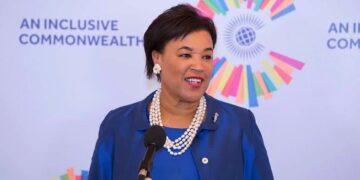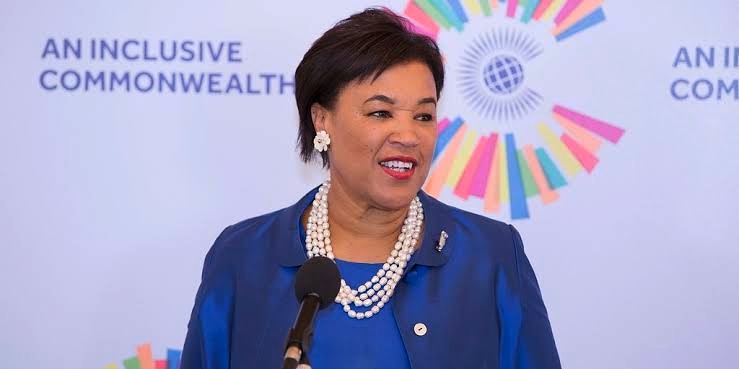By John Ikani
Commonwealth countries are aiming to strengthen trade and investment ties to the tune of $6.5 Trillion in five years.
This was made known by Commonwealth Secretary-General, Baroness Patricia Scotland during the opening ceremony of the 2022 Commonwealth Business Forum (CBF 2022) in Kigali, the capital city of Rwanda on Tuesday.
According to her, the Commonwealth’s ambition is to facilitate trading within countries.
She explained that the measure would see 54 member countries expand Intra-Commonwealth trade by $6.5 trillion in the next five years from the current $13 trillion.
It is worthwhile to note that figures by the Commonwealth Secretariat show that trade costs within the Commonwealth are on average 21 percent lower, while investment flows are 27 percent higher than those between other country pairs.
The combined GDP of Commonwealth countries is now around $13 trillion and is estimated to reach $19.5 trillion in 2027. The population of the Commonwealth is over 2.4 billion.
“At the heart of our mission is trade – the lifeblood of economic activity, and the arteries of the economic relationships between our Commonwealth member countries. The Commonwealth advantage,” she said.
Also speaking at the Forum, Rwanda’s President Paul Kagame urged business leaders to invest in inclusive growth that brings shared opportunities among members of the Commonwealth.
“There is already the understanding that we must work for a common future. We have to work for a common future. We have to work towards that and make sure we get it. It’s a work in progress and we are moving towards it and I am optimistic,” President Kagame said.
CBF 2022 will address the Commonwealth Heads of Government Meeting (CHOGM) theme – ‘Delivering a Common Future: Connecting, Innovating, Transforming’, with a focus on “A Global Reset”, dealing with the impact of the pandemic and the Commonwealth’s role in rebuilding and reinvigorating the global economy.
Throughout the three days of the forum, participants will explore topics such as financing future growth, trade and regional integration, sustainability, inclusive and resilient food systems and the future of work.




































